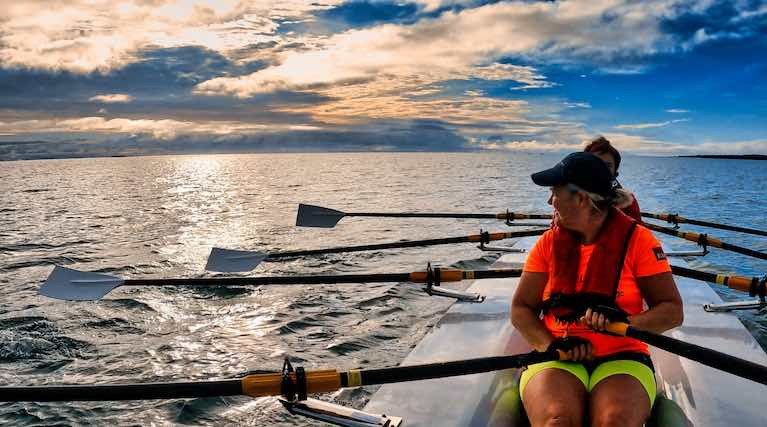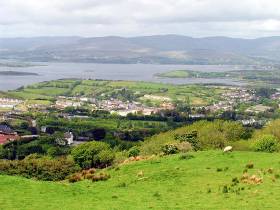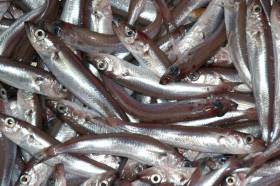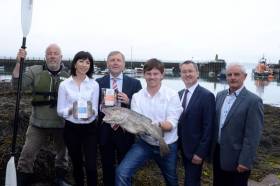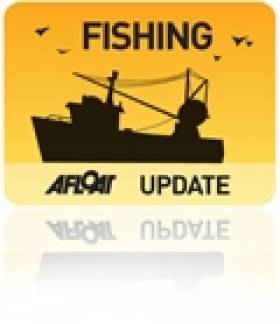Displaying items by tag: Fisheries Local Action Group
Further 33 Grant Awards by EMFF Fisheries Local Action Groups
A third tranche of grant awards worth €558,039 to 33 local community groups and micro-enterprises were made today by the Minister for Agriculture Food and the Marine, Charlie McConalogue T.D. See the full breakdown of awards below.
In the South, Ring Rowing Club got an 80% grant of €5,200 for equipment. Likewise, Courtmacsherry Rowing Club was awarded €7,988
Baltimore Community Council’s Croí Na Mara project got €14,940 towards its memorial to commemorate those lost to the sea in the coastal village in West Cork
In the North, Donegal County Council were awarded €15,840 for Harbour facilities.
The awards by five of the Fisheries Local Action Groups were established under Ireland’s European Maritime and Fisheries Fund Programme. The grants are co-funded by the Government of Ireland and the European Union.
Announcing the third tranche of awards, Minister McConalogue said, “I am delighted to announce today a further 33 coastal projects to benefit from EMFF funding through the Fisheries Local Action Groups established as part of my Department’s EMFF Programme supporting the development of our seafood sector and coastal communities. These latest grant awards mean a total of €3.3 million FLAG funding has been awarded this year alone to 188 coastal projects.”
Minister McConalogue added, “These projects will provide valuable economic and social benefits to our coastal communities during a difficult period for many. This is just one of the ways in which my Department’s EMFF Programme is making a positive difference to our coastal communities.”
Flag South
|
Applicant |
Project Title |
Rate |
Total Cost |
Grant Aid |
|
Ring Rowing Club |
Equipment |
80% |
6,500.00 |
5,200.00 |
|
Courtmacsherry Rowing Club CLG |
Equipment |
80% |
9,985.00 |
7,988.00 |
|
Oceans of Discovery |
Oceans of Discovery Scuba Diving & Marine Education / Promoting Corks Underwater World |
50% |
20,063.00 |
10,031.50 |
|
Wild Atlantic Glamping Ltd. |
Equipment |
50% |
11,252.00 |
5,626.00 |
|
Clean Coasts Ballynamona |
Equipment |
80% |
31,666.80 |
25,333.44 |
|
Bantry Inshore Search & Rescue Association CLG |
Equipment |
80% |
22,448.00 |
17,958.40 |
|
Gecko Adventures |
Watersports Equipment |
50% |
30,016.00 |
15,008.00 |
|
Ballycotton Development Company Limited |
Village Island Mural |
80% |
1,142.00 |
913.60 |
|
Elln Hutchins |
Seaweed Educational Supports |
80% |
9,902.00 |
7,921.60 |
|
Baltimore Community Council |
Croí Na Mara |
60% |
24,900.00 |
14,940.00 |
|
Total |
167,874.80 |
110,920.54 |
||
|
|
Flag North
|
Applicant |
Project Title |
Rate |
Total Cost |
Grant Aid |
|
Donegal County Council |
Harbour Facilities |
60% |
26,400.00 |
15,840.00 |
|
Coiste Forbartha na Carraige |
Footbridge |
80% |
32,627.12 |
26,101.70 |
|
On the Rocks |
Pods |
40% |
69,800.00 |
27,920.00 |
|
Muileann Coirce Leitir CTR |
Siúlóid Abhainn na Timpeallachta (Environmental River Walk) |
80% |
43,803.32 |
35,042.66 |
|
Total |
172,630.44 |
104,904.35 |
FLAG Northwest
|
Applicant |
Project Title |
Rate |
Total Cost |
Grant Aid |
|
Mayo North Destination Steering Group |
Support for Mayo North Tourism promotion and development plan 2020 – 2023 |
80% |
22,623.27 |
18,098.62 |
|
Jasmin Priegelmeir |
Cré Clare Island Pottery Shop |
40% |
14,698.05 |
5,879.22 |
|
Mayo County Council/Belmullet Tidy Towns |
Mayo County Council/Belmullet Tidy Towns |
33% |
150,000.00 |
50,000.00 |
|
Ceide Coast Community |
Feasibility study for Ceide Coast Incubation Hub |
80% |
20,000.00 |
16,000.00 |
|
Total |
207,321.32 |
89,977.84 |
FLAG West
|
Applicant |
Project Title |
Rate |
Total Cost |
Grant Aid |
|
J & S Ocean Products |
Upgrading Processing Equipment |
80% |
16,549.00 |
13,239.20 |
|
Séamus Ó Flatharta |
Inis Oírr Glamping and Campsite |
40% |
17,460.00 |
6,984.00 |
|
Oranmore Castle |
Oranmore Castle Cultural Centre |
40% |
42,553.21 |
17,021.28 |
|
Calluragh House Concerts |
Workshop Improvements |
40% |
7,801.00 |
3,120.40 |
|
Loop Head Tourism Ltd |
Development of the tourism product on Loop Head peninsula which will have a positive effect on the local communities |
80% |
4,900.00 |
3,920.00 |
|
Cuan Beo CLG |
Cuan Beo - Implementing a holistic approach to sustainability in Galway Bay 2020 |
80% |
16,191.55 |
12,953.24 |
|
Spiddal Craft & Design Centre |
Online marketing campaign |
80% |
6,500.00 |
5,200.00 |
|
Owen O Connell |
Training |
50% |
2,000.00 |
1,000.00 |
|
Údarás na Gaeltachta |
Slí Chonamara Trail |
100% |
43,070.58 |
43,070.58 |
|
Total |
157,025.34 |
106,508.70 |
||
|
Overall Total |
|
887,011.50 |
558,039.12 |
Local Fisheries Groups Across Europe To Discuss ‘Smart’ Solutions To Coastal Challenges In Bantry Next Month
Fisheries Local Action Groups (FLAGs) from across Europe will be meeting in Bantry next month to discuss “smart” ways to tackle coastal challenges.
The Smart Coastal Areas seminar, hosted by FLAG South and Bord Iascaigh Mhara at the Westlodge Hotel from Tuesday 2 to Thursday 4 April, aims to provide ideas and guidance on ‘smart’ development — including activities, development models and ways of working to boost the fisheries industry and coastal regions in an innovative way.
In 2017, the GDP of the Irish seafood sector was estimated at €1.15 billion. More than 14,000 people are employed in Ireland’s seafood sector, many of whom work and live in rural coastal communities.
Fisheries and coastal areas are impacted by factors such as depopulation, ageing population, climate change and economic decline.
The EU’s European Maritime and Fisheries Fund (EMFF) was set up to support initiatives by local fisheries communities through Community-Led Local Development (CLLD). FLAGs can use this money to implement projects that support sustainable small-scale fisheries and aquaculture production, and coastal communities.
However, funding is not the only answer, as creativity and strategic action is also needed.
The Smart Coastal Areas seminar will highlight:
- Smart partnerships (creating win-win situations between different interest groups)
- Smart resource use (optimising local resources and production systems)
- Smart financing (reaching small-scale beneficiaries: micro-credit, etc)
- Smart services (adapting services to ensure their viability: smart harbours, connecting remote areas, etc)
The seminar will include presentations on FLAG projects in EU countries that demonstrate smart approaches to rural sustainability and development. Local examples from the Cork coast are Courtmacsherry Community Shop and Schull Bait Bins, both supported by Ireland’s FLAG South.
Also included with the seminar will be a field visit to local fisheries-related businesses as well as Whiddy Island to view the progress of a tourism-related project.
#Fishing - Marine Minister Michael Creed has announced details of grants worth €1.5 million under Ireland’s European Maritime and Fisheries Fund (EMFF) to more than 100 coastal-based projects.
The grants support a total investment of €2.4 million in these additional 106 projects within Ireland’s seven Fisheries Local Action Groups (FLAGs).
“The FLAGs initiative is proving a fantastic success and the grants awarded to the 247 local coastal projects to date in 2018 will be a hugely important boost to these coastal communities,” Minister Creed said.
Successful projects included investments in micro seafood enterprises, marine tourism and marine leisure projects, heritage projects, small harbour facilities, and environmental and training projects.
The grants are co-funded by the Government and the European Union under the EMFF Operational Programme for the seafood sector.
Details on the FLAG scheme and on how to apply can be found on the Bord Iascaigh Mhara website.
#Fishing - Marine Minister visited Ballycotton Harbour in Co Cork yesterday (Thursday 8 June) to announce a range of successful projects that will deliver a total investment of €3.6 million covering 153 projects under the Fisheries Local Area Action Group (FLAG) Strategy for Ireland’s seven coastal regions.
The FLAG Scheme is co-funded by the Exchequer and the EU under Ireland’s European Maritime and Fisheries Fund (EMFF) Operational Programme 2014-20. Over the duration of the EMFF programme, the FLAG Scheme will deliver €12 million in funding to Ireland’s coastal communities.
Speaking in Ballycotton at the event to announce the FLAG grant offers, Minister Creed said: “It is testament to the hard work and dedication of our volunteer FLAG Board members in each of our seven FLAG regions that this year’s programme has delivered so many projects that will enhance the economic and social wellbeing of our coastal communities.”
Over 200 project applications were received under the FLAG Scheme this year, with the final 153 selected by the FLAG Boards for their contribution to community rejuvenation, enterprise, innovation, job creation and skills enhancement across the fishing, aquaculture and maritime industries.
Bord Iascaigh Mhara (BIM) worked closely with the FLAG Boards around the coast as they developed and implemented their own local strategies, added its chief executive Jim O’Toole.
“Seafood and its wider role in the community is at the core of this innovative programme and it is the diverse nature of the projects funded under the scheme that illustrates the true value of the seafood industry to our coastal communities and also the potential for further growth in the years ahead,” he said
Finian O’Sullivan, board chair of FLAG South, shared his delight that the Cork region “has approved funding for 17 projects ranging from marine tourism, seafood development and production, community-led initiatives, and supports for small-scale coastal fishermen.
“Of the 17 projects approved today, €250,000 in grant aid has been awarded with an overall value to the economy of the South FLAG area of over €500,000.”
Last month, Minister Creed announced the award of more than €1.3 million in grants to 19 seafood enterprises in nine different counties under the EMFF Operational Programme of the seafood sector.
#FISHING - Bord Iascaigh Mhara (BIM) recently convened a Fisheries Local Action Group (FLAG) with representatuves from the fishing and tourism industries, community groups and county councils to discuss ways to boost revenue in the Galway and Clare region.
As the Galway Advertiser reports, the Western region FLAG comes after the official launch of the 'Axis 4' programme for sustainable development of fishery-dependent areas, which aims to empower communities that rely on fishing or aquaculture to further develop the marine resources at their disposal.
It also comes hot on the heels of the Government's 'ocean wealth roadmap' launched by Marine Minister Simon Coveney earlier this month, which is specifically geared towards exploiting Ireland's potential for 'blue growth'.
The six FLAGs established in key coastal areas around Ireland are responsible for formulating a development strategy for funding suitable local projects. To qualify for funding support, such projects must satisfy a list of critera, such as having a clear marine connection or providing specific benefit to a fishing area.
The Galway Advertiser has much more on the story HERE.


























